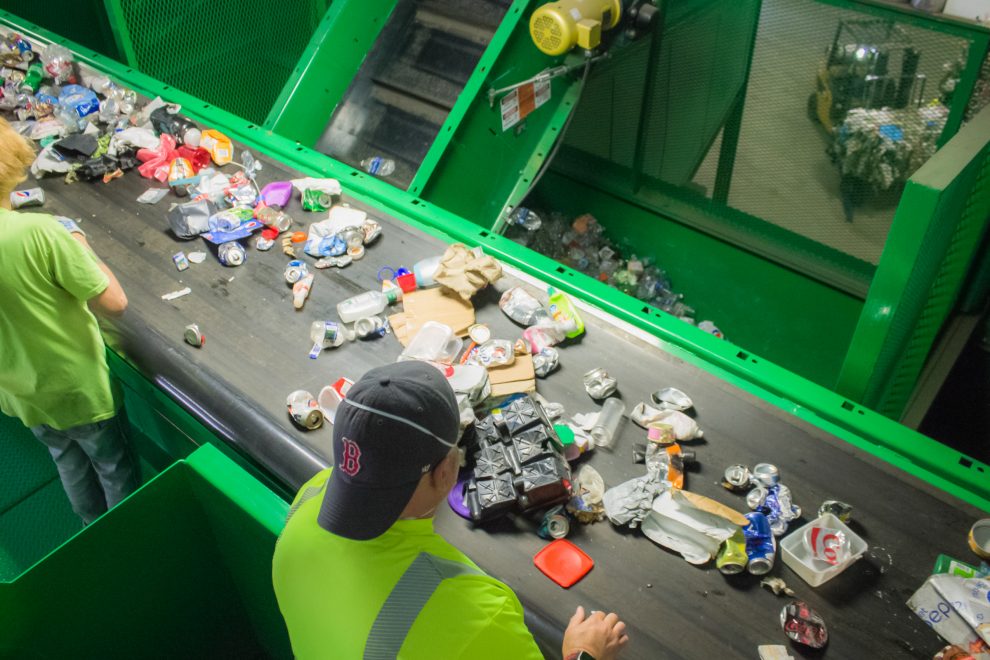It’s 2019 and the Earth is already on its knees surrendering to the atrocities of mankind and the unending immoral virtue of us, humans of attaining developmental goals through crushing every part of nature(majorly, Flora and Fauna).
There are certain concepts that were invented or developed by humans for the betterment of the human race that are backfiring us catastrophically on the global level. One such major example of this is the discovery of ‘Plastic(highly un-biodegradable material)’ and its consistently increasing use among humans; another is the falling/ deteriorating structure of ‘Solid waste management'(SWM), especially in a country like ours, India. Then, there are problems like of deforestation,etc.
As these environment murdering giants stand tall, there are also a number of measures(ecological heroes) which were developed or invented to cope up with the current crisis of Ecological depletion. Game-changing of these measures is,’Recycling’.
- Recycling in modern times is an actual effective measure to fight the problem of Solid Waste Management. There is a 3R rule in the concept of sustainable development, which focuses on the methods of Reduce, Reuse, and Recycle.
- Firstly, the method of reducing which means reducing the use of the un-biodegradable matter in daily life. Then, comes the method of reusing the matter more than once, these two methods are effective in holding generations of waste.
- While on the other hand, Recycling is a process that includes the materials to undergo a chemical transformation. Basically, Recycling focuses on the usage of waste as raw materials to make new products. Thus, recycling also prohibits the use of virgin raw materials in production or manufacturing.
- Thus, recycling is regal in reducing the overall life cycle impacts of material on the environment and public health.
- There are few materials that cannot be recycled. The most common recyclables include paper, batteries, plastics, and glass.
Paper:
According to the latest data from the EPA, over 26% of all waste materials in the United States are paper products. In India, there has been a slow improvement in the state of recycling this is an upward trend that can continue to improve where Indian paper mills imported 133 percent more waste paper during the first half of the current financial year.
Plastic:
The progress on plastic recycling however as been slow with poor classifying of waste materials in urban population. Landfills with 90% plastic take anywhere from 6 years to 600 years to break down. This is why the separation of non-degradable plastic is crucial for the well-being of the environment.
E-Waste:
E–waste garbage list which includes gadgets like smartphone, tablets, laptops, video game consoles, cameras, batteries and many more. India had 1.012 billion active mobile connections in January 2018. Every year the number is growing exponentially. In 2016, the United Nations reported that only 20% of e-waste produced was recycled globally, which is not a good sign, these wastes are toxic substances and hazardous for the environment so to ensure a healthy planet we need to recycle them at any cost.
Glass and Metals:
According to a report by NDTV India has a poor collection rate of 45 percent when it comes to glass recycling. This means that only 45 percent of India’s glass waste is sent for recycling. The levying of 18% tax on glass waste means that buyers of glass waste will have to shell out more than earlier.
Metals trash soup cans, soda cans, and even aluminum foils are being recycled in India with the sector currently providing employment to nearly 1.75 million people and contribute around 2 percent to GDP. It’s true that it has the potential to generate ₹14-lakh crore of additional cost savings by 2030 according to the Material Recycling Association of India which is the apex National Association that represents India’s Recycling Industry.
TIPS FOR RECYCLING
However, the concept of recycling also needs separated categories of waste whether separated on the basis of source or after collection. The wastes are collected in a mixed form which is known as Municipal Solid Waste(MSW). Of these, the recyclables are separated manually to some extent. Sale of recyclables from mixed wastes provides a livelihood to marginalized
urban populations in low and middle-income countries.
This way Recycling helps in termination of heaps of solid wastes present in the environment which cause its Degradation. Creating awareness among people to make it a habit to segregate waste and help recycle is the need of the hour.














Add Comment